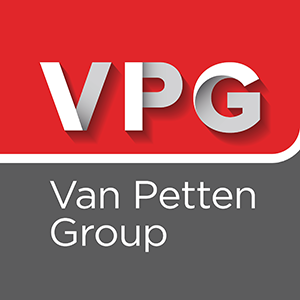Successful tradeshows have to serve the needs of both exhibitors and attendees. Understanding those needs allows meeting planners, event hosts, and businesses that serve the association community to plan offerings and outreach activities accordingly.
We all know why most companies exhibit at trade shows—to gather leads for new business. According to Exhibit Surveys, 67% of all trade show attendees represent new prospects and potential customers for exhibiting companies.
But do exhibitors know why those potential customers are attending? If not, companies are missing a great opportunity to respond to specific needs, build better relationships and close sales.
In the research report Current and Emerging Trends of Trade Shows, completed in conjunction with Cornell University’s Center for Hospitality Research, tradeshow attendees and exhibitors were asked about characteristics of the show they most recently attended and to identify components of hypothetical tradeshows that would influence their decision to attend.
Researchers found that both exhibitors and attendees are highly motivated by location, cost, and duration. Attendees are more driven by education program offerings, while exhibitors are drawn by opportunities to conduct business.
Large or midsize U.S. cities are best. When it comes to location, both exhibitors and attendees prefer large or midsize U.S. cities over resort locations or international destinations. Fifty-two percent of exhibitors and 44 percent of attendees reported that the last tradeshow they had attended was in a large U.S. metro area, and 36 percent in each group opted to attend one in another U.S. location.
Time and money matter—a lot. Total costs including registration (for attendees), booth fees (for exhibitors), travel, and lodging are a primary concern for both attendees and exhibitors. Even a 5 or 10 percent decrease in cost relative to average expenditure was consistently rated by both exhibitors and attendees as highly motivating to attend a particular tradeshow. Both groups were correspondingly less motivated to attend when the costs rose 5 or 10 percent higher than what they usually paid.
Attendees spent a median of $1,375 for a tradeshow, with lodging, registration, and transportation costing the most. Exhibitors reported spending a median of $4,045, with booth fees, lodging, and transportation taking up the top three spots.
Regardless of their role, respondents all favored an event of two to three days. They want to come in, do their business, make connections, and leave. If the event is shorter than two days, they don’t have time to conduct their business; if it’s longer than three days, the event becomes stale and people leave early.
Business drives exhibitors, and education draws attendees. Exhibitors and attendees go to tradeshows with different primary objectives. For attendees, learning programs were the top factor in their decision to attend, along with networking and relationship activities. Exhibitors’ top reasons for attending recent tradeshows center on promoting their business and forging connections. Exhibitors also rate education, talks, and panel discussions as influential when deciding to participate in an event, indicating that they are attuned to the activities that appeal to their target audience.
When deciding whether to attend a tradeshow, exhibitors and attendees are looking for the best overall value. Time, money, and the quality of the program are all crucial. To best serve the tradeshow market, research suggests that meeting planners need to meet the challenge of providing opportunities for exhibitors to market their products and attendees to engage in distinctive learning programs and providing all participants the opportunity to forge fruitful connections with their peers—all in a few days in an accessible, affordable location.
MVP
Megan Van Petten
CEO & President
Van Petten Group, Inc.
TOP 5 MOTIVATIONS
FOR ATTENDING A TRADESHOW
Exhibitors
- Promote brand
- Enhance relationships with existing partners/associates]
- Develop new marketing leads
- Network with industry peers
- Introduce new products and services
Attendees
- Attend educational sessions
- Review/learn about new products and services
- Network with industry peers
- Attend panel discussions, speaker sessions, and/or workshops
- Enhance relationships with existing partners/associates
